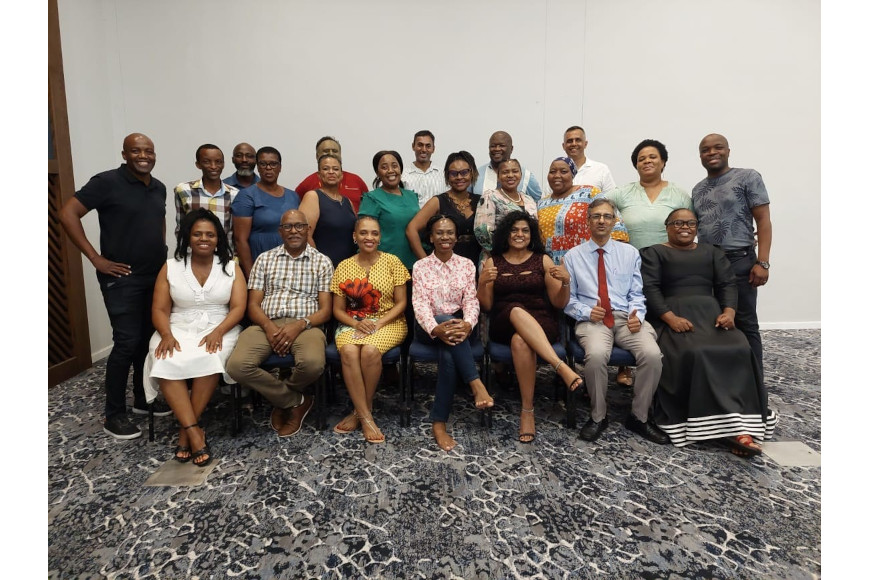Durban University of Technology’s (DUT’s) Dr Dianna Moodley, Research Coordinator in the Faculty of Arts and Design recently presented a talk on Curriculum Planning: Post COVID-19 to Subject Advisors at the KwaZulu-Natal Department of Basic Education, Planning Indaba. KwaZulu-Natal Subject Advisors came from Ugu District, KwaZulu-Natal South Coast, including Umzinto, Scottsburg, Port Shepstone, Harding, Ezingolweni, Ramsgate, Margate, Highflats, Eshowe, Hibberdene and Shelley Beach.
Dr Moodley’s talk was positioned within the district’s curriculum, assessments, and examinations strategic planning, aimed at improving academic performance for 2023 and maintaining position one in the Province of KwaZulu-Natal. Dr Moodley focused on taking into consideration the psycho-social effects of COVID-19, coupled by trauma, fear, mental instability and isolation on students experienced during the lockdown.
Dr Moodley expressed how vital these talks are, especially at the start of a new era in education, post the pandemic.
“We now have a cohort of learners (and educators) who are casualties of the pandemic. Institutions of learning should expect students and educators who are mentally volatile, expect hyper-sensitivity, expect fits of rage, and expect escalating violence at schools. Consideration should be given to the psycho-social effects of COVID-19 such as trauma, fear, mental instability, isolation on students and teachers. The everyday challenges compounded by the pandemic – unemployment, illness, poverty, homelessness, and the list goes on. In addition, gender-based violence, which is rampantly on the increase, substance abuse, human trafficking, suicide, heinous crimes on children, hijacking, rape,” said Dr Moodley.
Other issues of grave concern were discussed, amongst them were school leadership frantically scurrying towards administration of assessments and examinations, appearing bent on increasing throughput rates, schools that focus on pass rates and not on whether actual learning is occurring, complex other learning challenges faced by students, including current schooling conditions with insufficient learning resources at school and inconducive learning environments at home.
Dr Moodley added that it will be delusional for educators to think they have students sitting in classrooms with an ideal mindset to retain and optimise learning.
“Add juggling school with part-time jobs, taking care of siblings, sharing communal spaces at home, load-shedding, water shortage, household chores. Unless education adapts teaching practices to become sensitised to the real concerns of students, sub-standard education will continue, further intensifying an already defective education,” she said.
She also emphasised that teaching and learning approaches will have to adapt accordingly to the changed environment. Teaching practices need to adapt responsively to this unprecedented volatile environment. She advocated for ‘critical humanizing pedagogy’ – an approach that emphasises love, care, dialogue, and solidarity as key in empowering learners. This involves brutal, self-conscious, introspective reflection of the effect of one’s practice on students’ lives.
Pictured: Dr Diana Moodley with Subject Advisors from KwaZulu-Natal. Image Supplied.
Pretty Shezi


